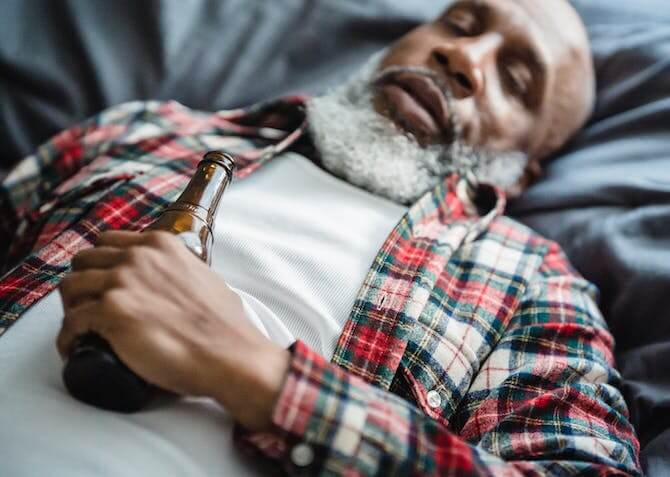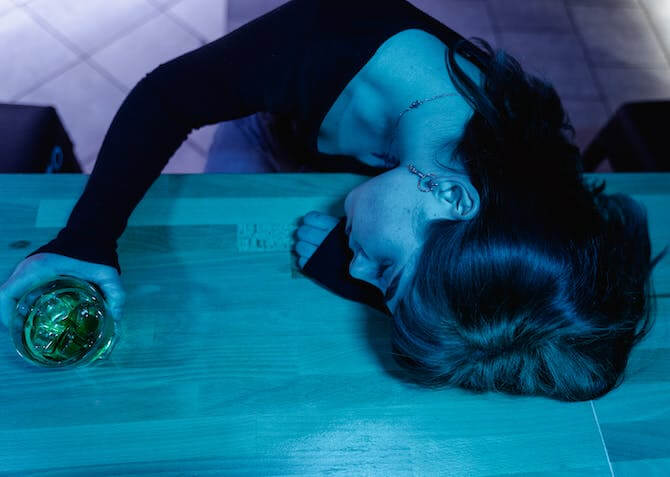
Dry January & Your Sleep
Dry January is drawing to and end.
For some, February can't come soon enough, but others could have seen a huge improvement in certain aspects of their daily lives.
Cutting down or completely removing drinking alcohol can have several health benefits, including potential improvements in sleep quality. But, of course, the effects can vary from person to person.

Now that the end of January is in sight, we're going to look at some ways Dry January might have improved your sleep.
Better Sleep Quality

Falling asleep drunk is quite common. I am sure we have all done it once or twice.
Alcohol is a depressant and affects your nervous system. When it reaches your brain it slows down the firing of neurons, causing relaxation, fatigue, and sleepiness.
However, alcohol can seriously disrupt your sleep cycle, more specifically the REM (rapid eye movement) stage. This crucial part of sleep is essential for restorative sleep.
By removing or reducing alcohol in your daily routine, you can experience better sleep quality, more restful nights, and a refreshed feeling when you wake up.
Improved Sleep Patterns
Alcohol can interfere with circadian rhythms, leading to irregular sleep patterns.
When we drink alcohol, it affects the production and release of certain neurotransmitters in the brain, including gamma-aminobutyric acid (GABA) and adenosine.
These neurotransmitters play an important role in promoting sleep and relaxation.
Eliminating alcohol during Dry January may help regulate your sleep-wake cycle, leading to more consistent and predictable sleep patterns.
Reduced Snoring and Sleep Apnea

Drinking alcohol has a relaxing effect on our muscles, including those in the throat.
This relaxation can cause the muscles in the throat to become overly relaxed and floppy, leading to an increased likelihood of snoring.
This relaxation of the muscles can also cause sleep apnea. You may think snoring and sleep apnea are the same thing; they aren't.
Sleep apnea is a sleep disorder that is characterised by pauses in breathing or shallow breaths during sleep. These pauses can last a few seconds to a few minutes and can occur multiple times a night.
Enhanced REM Sleep
Drinking alcohol has been connected to the negative effects on sleep patterns, particularly regarding REM sleep.
However, during Dry January, because of the lack of alcohol, there is an increased likelihood of an increase in REM sleep. This should be quickly noticeable as getting REM sleep makes you feel refreshed when you wake up.
REM sleep is an important stage of sleep that is in charge of memory consolidation and emotional regulation.
If you get more REM sleep, you may find you have better control of your emotions and are more resilient when dealing with stressful and challenging situations.
Stabilised Sleep Architecture
Your sleep architecture can easily be affected by alcohol and lead to disturbances in the various stages of sleep.
REM sleep isn't the only stage of sleep that can be affected by alcohol consumption.
There are other sleep stages along with REM. There is "non-rapid eye moment (NREM) sleep, which is further divided into three stages (N1, N2, and N3) and each stage plays its own crucial role.

Remember: individual responses to alcohol and changes in alcohol consumption can vary.
While some people may experience significant improvements in sleep during Dry January, others may not notice a substantial difference.
Factors such as overall health, pre-existing sleep conditions, and lifestyle choices can also influence how changes in alcohol consumption affect sleep.
If you're considering making significant changes to your alcohol consumption or if you have persistent sleep issues, it's advisable to consult with a healthcare professional for personalized advice and guidance.







Leave a Reply